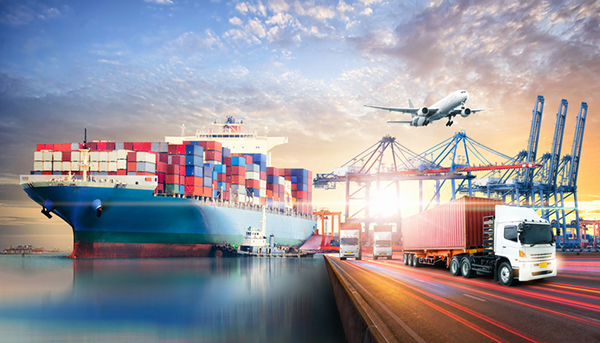How companies should navigate today’s shifting global trade landscape and remain in compliance amid increasing government scrutiny.

We all know global trade policy affects your supply chain and your ability to import and export products. Often you have interests on both sides of any issue. You want lower costs, efficient labor sources, and quality imports. You want to be able to sell your goods and services with minimal restrictions. At the same time, growing U.S. national security regulations are imposing compliance requirements on businesses engaging in cross-border activities. The practical result is that executives need to thoroughly know their supply chain and all parties involved in their business, from where and who a company sources material for import and the beneficial ownership of financial backers to suppliers, customers, end-users, and end-uses for the company’s products. Executives need to understand their supply chains, not just to ensure compliance and mitigate risk, but also to identify strategic opportunities for advantages over their competitors.
The Biden administration continues to slowly and steadily review specific decisions of the Trump administration, but generally is staying the course. For example, Biden is maintaining U.S. government positions regarding Section 301 duties on imported Chinese products, treating Hong Kong as part of China, prohibiting imports of products made from forced labor, and seeking to minimize U.S. reliance on Chinese imports of rare earth metals and semiconductors. Biden continues the use of effective targeted sanctions against individuals and companies as a mechanism to support U.S. national security and foreign policy goals; his administration has implemented a proactive “buy American” domestic policy in government contracts to boost U.S. manufacturing capacity and growth while safeguarding U.S. technology.
At the same time, the administration is making efforts to resolve disputes with traditional U.S. allies. In June Biden struck a deal with the EU to end the 17-year old subsidies to Boeing and Airbus, ensuring no rapid-fire tariff squabbles for the next 5 years. Next, he will focus on resolving disputes over the digital services tax by working with the Organization for Economic Co-operation and Development (OECD) structure. The administration is reengaging with strategic partners like the EU and Australia to reform the WTO, bolster the Paris Agreement on climate change, and promote an option to China’s Belt and Road Initiative with the OECD and G-7. Congressional recommendations on securing U.S. national security supply chains recommend similar outreach, developing processes to foster closer cooperation on resources and investments from traditional U.S. allies as an alternative to reliance on adversaries such as Russia and China.
The result of these actions is a tug of war between promoting free trade and domestic industry protection. On the one hand, Biden has maintained the tariffs on steel and aluminum. However, to build new products in the U.S. we need China’s rare earth materials. And, open and free trade policies do result in lower U.S. domestic prices. The Biden policies so far are following what Trump started with China but also are trying to build an international coalition to be proactive with progressive multilateral trade policies to promote U.S. domestic production and protect U.S. national security interests. The problem for the administration may actually be Congress where voters can see the benefits of countering Chinese influence but may not have the long-term vision for a sustainable open global trade policy.
So where does this leave global manufacturing and transportation companies? What can you anticipate and how can you position yourselves for the regulations to come? Expect an increase in government regulations targeting U.S. imports, exports, supply chain vulnerabilities, and foreign investment. Whether you are in the engineering, food, chemical, or aerospace industries, companies need to be leaner, flexible and prepared to comply with regulations and adjust to supply chain disruptions. In practical terms, management must change. Supply chain and logistics is no longer a middle management issue that rarely floats up to the C-Suite. The companies that will weather the new normal will be resilient. That means not just a resilient supply chain but a resilient open-minded C-Suite. Supply chain issues will be part of strategic planning as will ESG issues and understanding where forced labor is used and workers’ rights are ignored. Creative thinking about the country of origin and correct tariff codes will be vital to ensuring import compliance and knowing how and where you can shift production and find alternative suppliers. Always consider new suppliers, new customers, and opportunities to benefit from trade flow changes with shippers and manufacturers. Your experts in these topics need a seat at the table to share their market understanding and supplier knowledge. Your in-house counsel can be important partners here – they often identify these issues before they rise to the level of problems and can identify possible opportunities and options if they are included.

These considerations apply on both the import and export sides. When is the last time you inquired about your sanctions compliance? Recent Executive Orders have expanded sanctions programs targeting Russian and Chinese individuals and entities. These sanctions actually filter down to your internal restricted parties’ compliance procedures. Does the company conduct restricted party screenings and IP address blocks to mitigate the risk of violating U.S. sanctions prohibiting transactions with designated individuals, entities, or embargoed regions like the Crimea region of Ukraine, Cuba, Iran, North Korea, and Syria? Who runs these searches? Are results reported to legal or to operations? Has the company conducted an internal audit on these trade compliance measures?
Even companies that do not export can be affected by these regulations if they hire foreign workers, or use imported technology. The Biden administration has increased regulatory enforcement government-wide, from the Department of Justice to the Federal Trade Commission, and the Treasury and Commerce Departments as well as the Securities and Exchange Commission. The continuing focus on protecting U.S. technology, infrastructure, and data is part of numerous executive orders and broad policy, from mislabeled imports and IP infringement at the Department of Homeland Security to legislative proposals that would mandate reporting on foreign ownership of U.S. companies.
The companies that will succeed in the coming years will be those who raise the level of knowledge in their C-Suites and with the board of directors. Embrace these changes and listen to your employees. Follow the administration. You may have to be prepared like you are on a seesaw—trying to balance in mid-air but having the knowledge and flexibility to adapt easily can make a significant difference to your bottom line. Here is one example: if you are importing from China and you are paying Section 301 import duties of 7.5 and/or 25%, and you have not joined the classaction lawsuit, you should be asking your experts—why not? The Court of International Trade (CIT) case is a cost-effective quick opportunity to possibly get your Section 301 duties refund. It is a no-brainer and if you don’t know about it gets you educated and in the game. Similarly, if you are receiving foreign investment, or are importing or exporting goods – do you know who you are doing business with? Government enforcement in these areas is steadily increasing and companies that have not analyzed their business partners from suppliers to customers to investors could be caught off-guard and face significant financial and reputational penalties.

Doreen M. Edelman is the chair and founder of the Global Trade & Policy practice at Lowenstein Sandler. She has more than 30 years of experience advising clients on the risks associated with export controls, customs matters and U.S. sanctions in cross-border M&A and investment transactions, and on the compliance requirements pertaining to technology, software, defense articles and services, and commercial goods.

Christian C. Contardo is an attorney at Lowenstein Sandler with more than 15 years of legal experience, with a deep national security background and Treasury sanctions policy experience. Prior to joining Lowenstein Sandler, he worked for more than a decade as a national security attorney in the federal government and is well-positioned to advise clients in the technology, finance, and industrial sectors on the full gamut of national security, global trade and privacy issues.
Scott Ellyson, CEO of East West Manufacturing, brings decades of global manufacturing and supply chain leadership to the conversation. In this episode, he shares practical insights on scaling operations, navigating complexity, and building resilient manufacturing networks in an increasingly connected world.